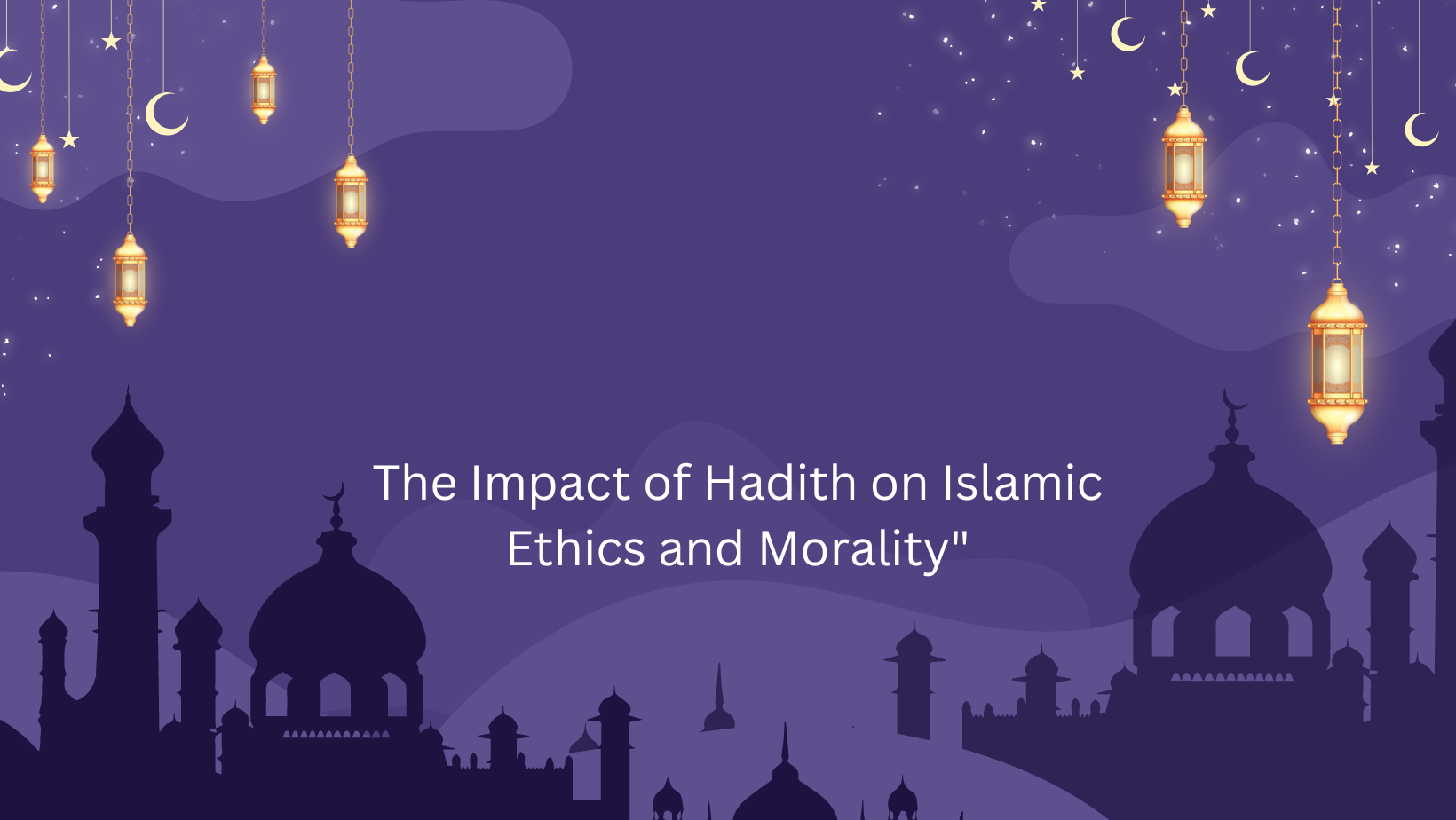Introduction
Hadith, the recorded sayings and actions of Prophet Muhammad (PBUH), holds a pivotal place in Islamic teachings. Alongside the Quran, Hadith forms the bedrock of Islamic jurisprudence, theology, and daily practice. This article explores how Hadith influences Islamic ethics and morality, guiding Muslims in their personal conduct, social interactions, and spiritual life.
The Foundation of Islamic Ethics
Islamic ethics, deeply rooted in the Quran and Hadith, emphasizes the development of a moral character based on faith, righteousness, and accountability to Allah. The Prophet Muhammad (PBUH), whose life and sayings are documented in Hadith, serves as the ultimate role model for ethical behavior. His teachings provide practical examples of how to implement the Quranic principles in everyday life.
Personal Conduct and Morality
Hadith offers comprehensive guidance on personal conduct, emphasizing virtues such as honesty, patience, humility, and compassion. For instance, the Prophet said, “The best among you are those who have the best manners and character” (Sahih Bukhari). This Hadith underscores the importance of good character as a measure of a person’s faith and righteousness.
Moreover, Hadith encourages self-discipline and self-improvement. The Prophet advised, “The strong person is not the one who can overpower others, but the one who can control himself in the face of anger” (Sahih Bukhari). This saying highlights the significance of controlling one’s emotions and developing inner strength, fostering personal growth and ethical behavior.
Social Ethics and Interactions
Hadith profoundly impacts social ethics, promoting justice, kindness, and respect in interactions with others. The Prophet Muhammad (PBUH) emphasized the importance of treating others fairly and with compassion, stating, “None of you truly believes until he loves for his brother what he loves for himself” (Sahih Muslim). This principle encourages empathy and altruism, forming the basis for ethical social relationships.
Additionally, Hadith addresses issues of social justice and community welfare. The Prophet’s saying, “The best charity is that given to a relative who does not like you” (Sahih Bukhari), highlights the importance of overcoming personal grievances for the greater good. Such teachings promote a harmonious and just society where individuals prioritize the welfare of others.
Economic and Business Ethics
The Hadith also provides guidance on economic and business ethics, emphasizing fairness, honesty, and accountability. The Prophet Muhammad (PBUH) said, “The truthful and trustworthy merchant is with the Prophets, the truthful, and the martyrs” (Tirmidhi). This saying elevates ethical business practices, encouraging Muslims to conduct their economic affairs with integrity.
Furthermore, Hadith addresses issues like fraud, exploitation, and unjust wealth accumulation. The Prophet warned against deceitful practices, stating, “He who cheats is not of us” (Sahih Muslim). Such teachings advocate for transparency and fairness in economic transactions, ensuring ethical conduct in business dealings.
Spiritual and Moral Development
Hadith plays a crucial role in spiritual and moral development, guiding Muslims towards a pious and righteous life. The Prophet Muhammad (PBUH) emphasized the importance of sincere worship and moral behavior, stating, “The best of you are those who are best to their families, and I am the best among you to my family” (Tirmidhi). This Hadith encourages Muslims to balance their spiritual obligations with ethical treatment of their family members.
Moreover, Hadith fosters a sense of accountability and mindfulness of Allah’s presence. The Prophet said, “Fear Allah wherever you are, follow up a bad deed with a good one to erase it, and treat people with good behavior” (Tirmidhi). This saying encapsulates the essence of Islamic morality, urging believers to maintain consciousness of Allah in all their actions and interactions.
Conclusion
The Hadith significantly shapes Islamic ethics and morality, offering a comprehensive guide to righteous living. By embodying the teachings of the Prophet Muhammad (PBUH), Muslims are encouraged to cultivate virtues, uphold justice, and maintain ethical conduct in all aspects of life. The enduring relevance of Hadith ensures that its impact on Islamic ethics and morality remains profound, guiding believers towards a life of faith, integrity, and compassion



